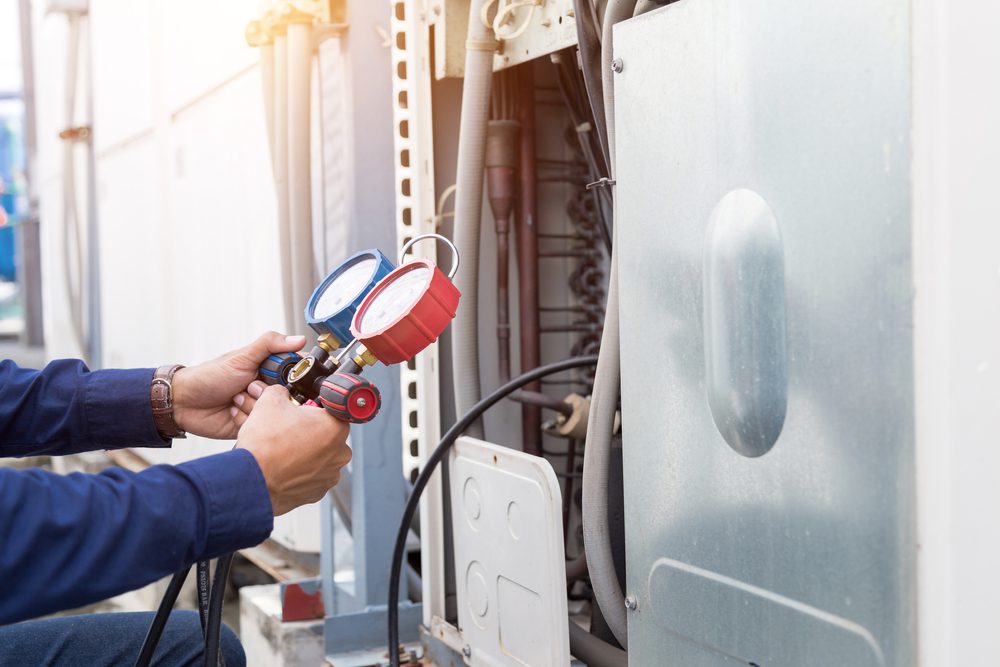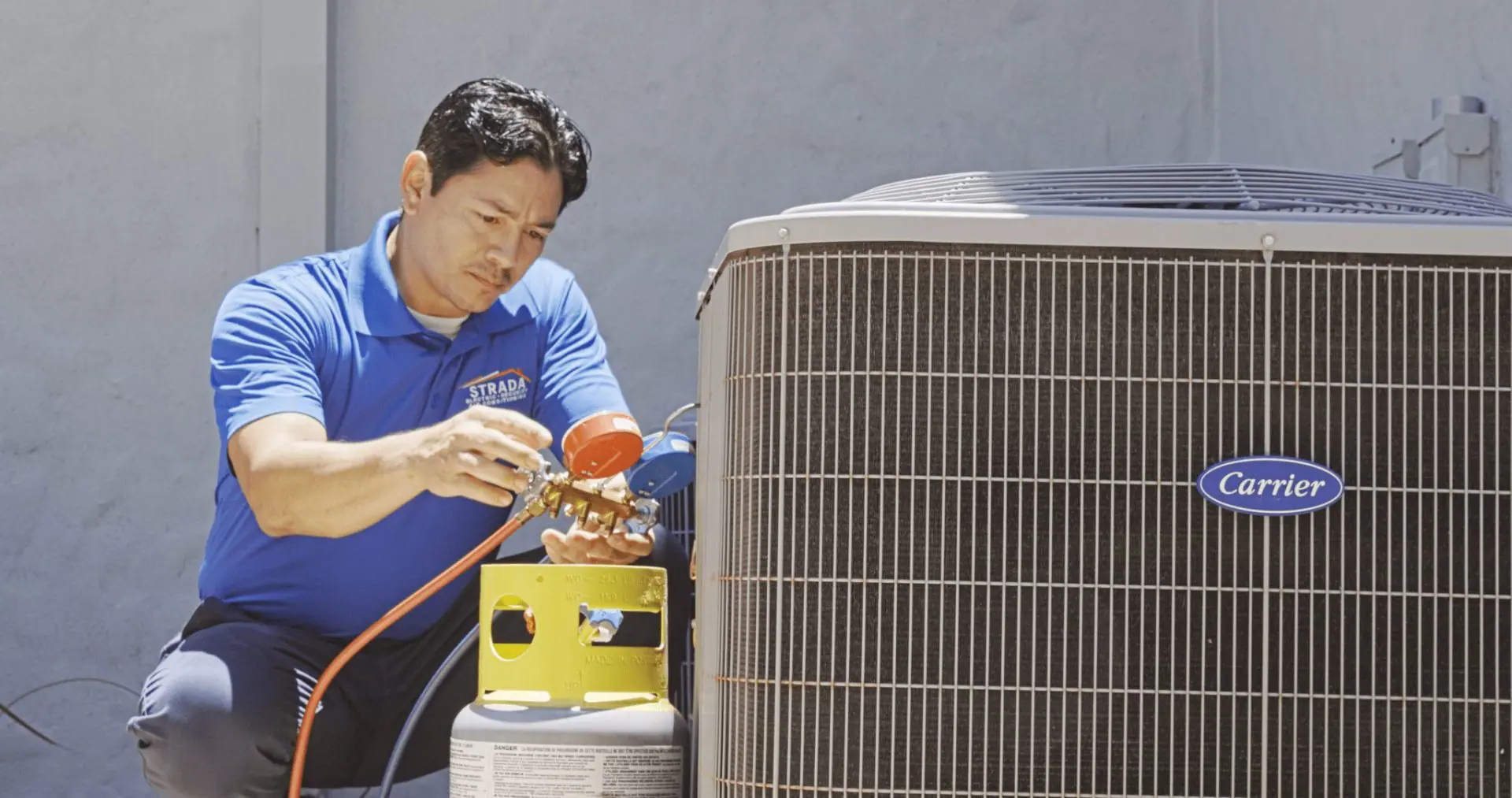Vital Concerns to Ask Your Air Conditioning Contractor in Brownwood TX
Vital Concerns to Ask Your Air Conditioning Contractor in Brownwood TX
Blog Article
The Significance of Cooling And Heating Installation: Key Considerations for a Comfortable Indoor Environment
The setup of an a/c system is a critical component in attaining a comfy and energy-efficient interior environment. The procedure entails numerous nuanced considerations that go past simply selecting an unit off the shelf. Factors such as the viability of the system for specific structure demands, correct sizing to prevent inadequacies, and the proficiency of professionals for a high quality installation play crucial roles. The fostering of sophisticated innovations can significantly enhance system performance. Recognizing these complexities is merely the beginning of ensuring optimum interior comfort. What are the crucial components that determine effective HVAC execution?
Choosing the Right System

When choosing an a/c system, it is vital to examine the ability needed to effectively warm or cool the space without overworking the system, which can lead to increased wear and operational expenses. Consulting with a professional HVAC contractor can provide valuable insights into selecting a system that straightens with both the building style and the anticipated usage patterns of the building.
In addition, thinking about the assimilation of clever modern technology can improve system management and monitoring, providing higher control and possible expense financial savings. By thoroughly examining these elements, one can ensure the option of an a/c system that not only meets instant needs yet likewise adds to long-lasting operational sustainability and passenger comfort.
Recognizing Energy Efficiency
Understanding power efficiency is crucial when thinking about a HVAC installment, as it straight affects both the ecological footprint and the operational prices of the system. High-efficiency cooling and heating systems are designed to utilize much less energy to accomplish the very same degree of comfort as much less reliable models, consequently reducing utility costs and advertising sustainability. The effectiveness of a cooling and heating system is commonly suggested by rankings such as SEER (Seasonal Energy Effectiveness Proportion) for ac system or AFUE (Yearly Fuel Application Efficiency) for furnaces. Higher scores indicate higher performance and reduced energy usage.

Purchasing an energy-efficient a/c system not only translates to set you back savings yet also adds positively to ecological conservation by decreasing greenhouse gas discharges. In addition, numerous jurisdictions supply rewards or discounts for the setup of high-efficiency systems, better improving their financial allure.
When evaluating power efficiency, think about advanced functions such as variable speed electric motors, smart thermostats, and zoning abilities. These innovations improve the system's capacity to adapt to differing need, consequently maximizing power usage. It is crucial to speak with heating and cooling specialists who can supply understandings right into the best options customized to certain climate problems and usage patterns, ensuring optimal effectiveness and convenience.
Significance of Appropriate Sizing

On the other hand, a small heating and cooling system will battle to get to the wanted temperature, specifically during severe climate conditions. This can result in continual procedure, leading to higher power costs and possible getting too hot of system elements. Additionally, insufficient sizing can lead to irregular temperature circulation, causing specific locations of a building to be as well warm or also great.
To accomplish the appropriate sizing, a detailed tons estimation is important. This includes assessing numerous elements such as the structure's square footage, insulation levels, window kinds, and neighborhood environment problems. By accurately figuring out the home heating and cooling down needs of an area, heating and cooling specialists can advise systems that guarantee effective procedure, lowered power usage, and boosted indoor comfort.
)
Making Certain Top Quality Installation
A smooth heating and cooling setup is the foundation of a system's long life and efficiency. Making sure high quality setup involves meticulous attention to information, adherence to sector requirements, and utilizing competent experts. The procedure begins with picking a skilled and qualified cooling and heating service provider. This specialist must possess in-depth expertise of diverse systems and be proficient at evaluating the particular demands of the structure.
Correct setup exceeds plain placement of tools. It involves specific calibration to guarantee optimum airflow, reliable energy intake, and uniform temperature level distribution. This consists of exact ductwork setup, ensuring connections are leak-free and safe, which is critical for preserving system performance and indoor air top quality.
Additionally, the execution of advanced diagnostic devices throughout installation can find potential concerns early, avoiding pricey repair services and extending the lifespan of the system. The service provider needs to likewise make certain that all components work and that the article system abides by neighborhood structure codes and regulations.
Routine Maintenance Practices
As soon as the structure for a high-performing HVAC system is developed via top quality installation, the focus should change to normal upkeep methods to guarantee continued efficiency and reliability. Routine upkeep not just prolongs the lifespan of the system yet additionally improves interior air high quality, decreases energy intake, and stops expensive repair services. Crucial upkeep tasks consist of consistently transforming air filters, cleaning up evaporator and condenser coils, and inspecting the system for leakages or clogs.
This simple job can considerably boost air flow and system effectiveness. In addition, professional specialists need to inspect the system each year, checking for refrigerant levels, electric links, and overall system performance.
Attention to ductwork is likewise vital; sealing and cleansing air ducts on a regular basis stops air loss and contamination. Applying a maintenance schedule makes sure that small concerns are addressed prior to they escalate, safeguarding the system's operational stability. By sticking to these upkeep techniques, home owners can optimize their heating and cooling system's functionality and maintain a comfortable indoor environment year-round.
Conclusion
By choosing a suitable system customized to certain building needs, understanding power efficiency, and making sure appropriate sizing, inefficiencies can be lessened. The involvement of proficient professionals warranties quality setup, while the combination of innovative modern technologies enhances system performance and surveillance.
A number of types of A/c systems are offered, consisting of split systems, hybrid systems, duct-free systems, and packaged heating and air systems, each with distinct advantages and restrictions.
Understanding energy efficiency is necessary when thinking about a HVAC setup, as it straight affects both the environmental impact and the functional expenses of the system. The performance of a HVAC system is normally indicated by scores such as SEER (Seasonal Power Efficiency Ratio) for air conditioners or AFUE (Yearly Gas Utilization Efficiency) for heating systems (lawn irrigation installation Brownwood TX).Once the foundation for a high-performing Heating and cooling system is developed through quality installation, the focus ought to shift to regular upkeep techniques to guarantee continued effectiveness and dependability. Additionally, specialist service technicians need to evaluate the system yearly, examining for cooling agent degrees, electric links, and general system performance
Report this page